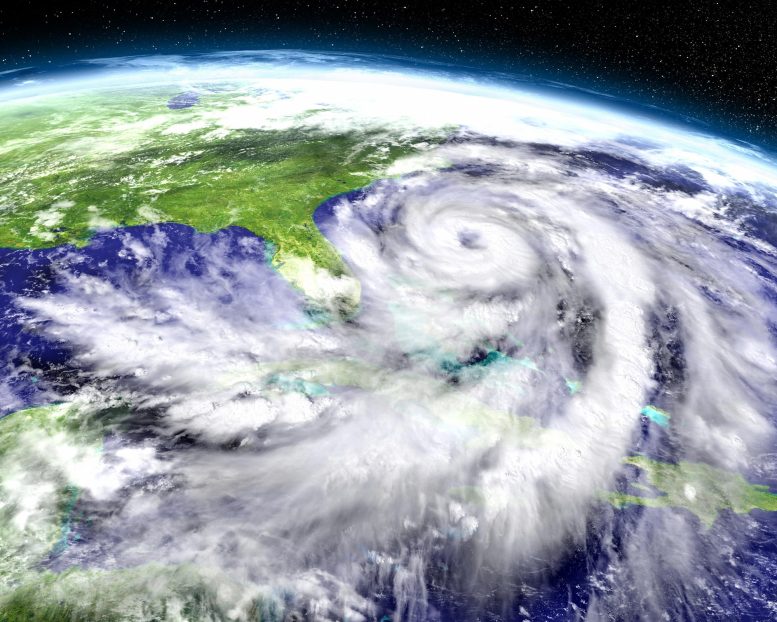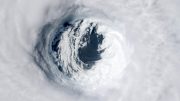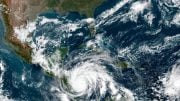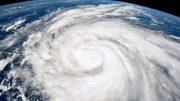
The researchers discovered a connection between persistent dread and concern, sadness, anxiety, and post-traumatic stress symptoms when people were repeatedly exposed to the possibility of destructive hurricanes.
UCI-led research ties exposure to hurricanes to worsened mental health
A groundbreaking study conducted by experts at the University of California, Irvine (UCI) found a correlation between repeated exposure to hurricanes—whether direct, indirect, or media-based—and adverse psychological symptoms that may be linked to increased mental health issues.

“Our study highlights the importance of direct, indirect, and media-based exposures to natural disasters, and demonstrates that as disasters become more frequent and severe due to climate change, people will likely experience more mental health problems that make it difficult to function in social- and work-related settings,” says UCI’s Dana Rose Garfin. Credit: Mimosa Luong / 7Delights Photography
The results, which were recently published in the journal JAMA Network Open, are vital for comprehending the psychological impact of recurring natural disasters, especially in light of the growing danger posed by climate change. Results showed that people’s reactions to subsequent storms change over time, becoming more negative rather than getting used to repeated exposure to disasters.
“We show that people are not likely to habituate or get used to, climate-related natural disasters that will increase in frequency and severity in the years to come. Our results suggest a potential mental health crisis associated with those who themselves directly experienced the storm or knew someone who did, as well as those who spent several hours engaged with media about the hurricane,” said Dana Rose Garfin, UCI assistant adjunct professor of nursing and public health, and first author of the report.
Garfin and her colleagues Roxane Cohen Silver, Distinguished Professor of psychological science, medicine and health; E. Alison Holman, professor of nursing; Rebecca Thompson, Ph.D., UCI postdoctoral scholar in psychological science; and Gabrielle Wong-Parodi, Ph.D., assistant earth system science professor and center fellow at the Woods Institute for the Environment at Stanford conducted the first-of-its-kind longitudinal study.
In order to identify any potential changes in mental health over time, the team evaluated residents of Florida in the hours before Hurricane Irma made landfall and again after Hurricanes Michael and Irma. Hurricane Irma struck in September 2017 and Hurricane Michael struck in October 2018, both of which were Category 5 storms.
The team found that repeated exposure to the threat of catastrophic hurricanes was linked to symptoms of post-traumatic stress, depression, anxiety, and ongoing fear and worry. In turn, these psychological symptoms were associated with greater social- and work-related impairment, including difficulty interacting with others, and performing work tasks and other daily activities.
“Some distress is normal following traumatic and extremely stressful events,” Garfin said. “Most people will recover and display resilience over time. However, as climate-related catastrophic hurricanes and other natural disasters such as wildfires and heat waves escalate, this natural healing process may be disrupted by repeated threat exposure. Moreover, we followed people longitudinally over two hurricane seasons, and our data show that as people experience multiple occurrences over time, psychological symptoms accumulate and intensify, potentially portending a mental health crisis.”
Anxiety can be an adaptive response to disasters and may motivate people to take protective action in preparation for the next event, team members said, and recommend that future research explore how to leverage that reaction in ways that do not increase mental health ailments. They also believe the strong link between media engagement and distress suggests that social channels and mainstream outlets can play a critical role in effectively communicating the risk of increased distress with repeated threat exposure.
Reference: “Association Between Repeated Exposure to Hurricanes and Mental Health in a Representative Sample of Florida Residents” by Dana Rose Garfin, Ph.D., Rebecca R. Thompson, Ph.D., E. Alison Holman, Ph.D., Gabrielle Wong-Parodi, Ph.D. and Roxane Cohen Silver, Ph.D., 16 June 2022, JAMA Network Open.
DOI: 10.1001/jamanetworkopen.2022.17251
The National Science Foundation funded the study under grant numbers SBE 1760764, BCS 1902925, and SES 1811883.









Be the first to comment on "Seeing Hurricanes – Even Just Through the Media – Can Impact Your Mental Health"